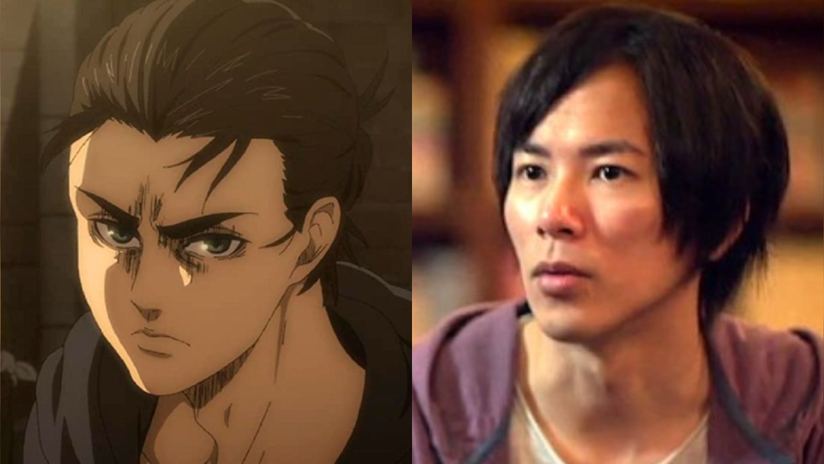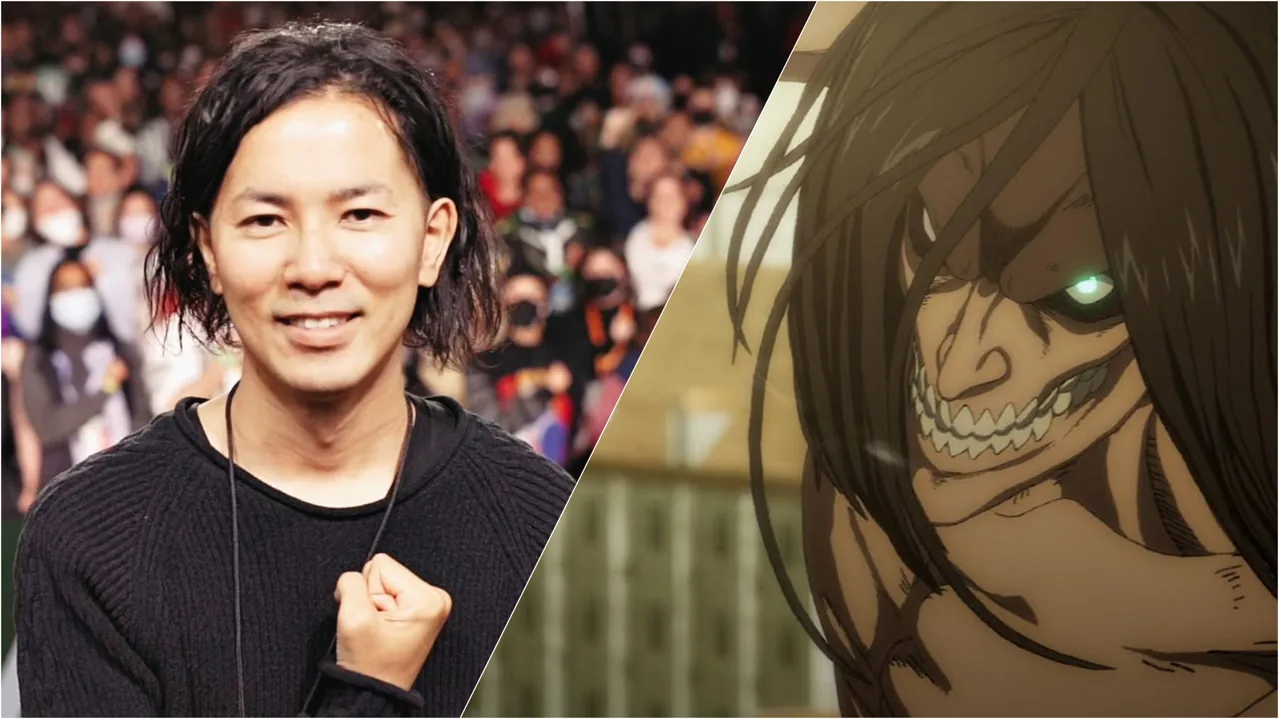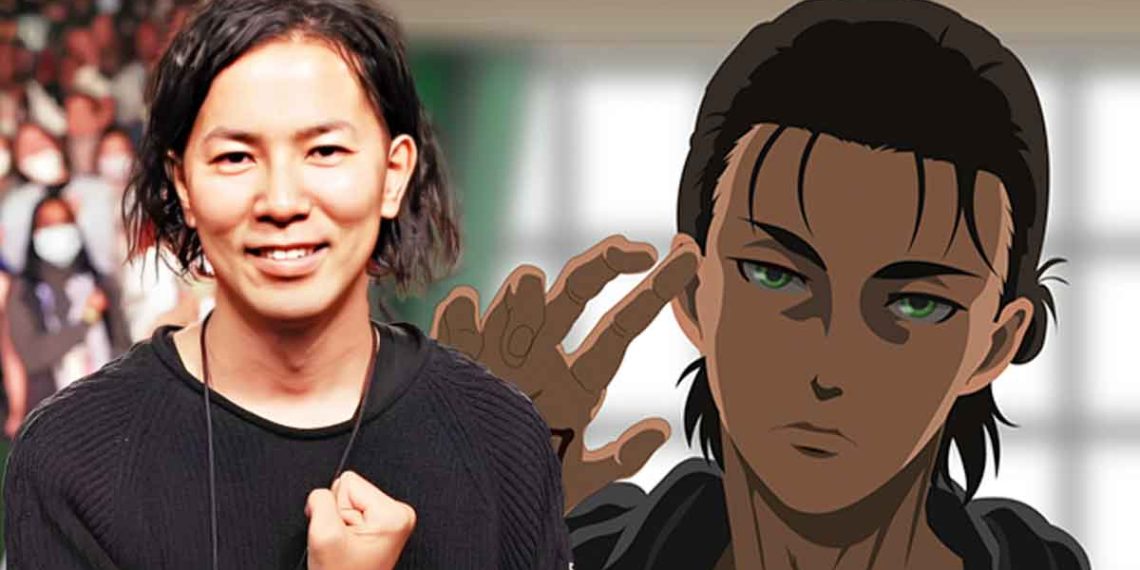Hajime Isayama’s shonen manga, Attack on Titan, reached its emotional and shocking conclusion in 2021 with Chapter 139, “Final Chapter: Toward the Tree on That Hill.” The anime adaptation followed in Fall 2023, delivering its grand finale. Despite the bleak ending, with the Rumbling destroying 80% of the world, a glimmer of hope remained thanks to a group of heroes.
One of the most pressing questions for fans is the fate of Eren Yeager, the main protagonist. In an interview with Crunchyroll News, Isayama addressed Eren’s disappearance from the narrative.
Hajime Isayama Explains Why Eren Was Entirely Removed from Attack on Titan’s Storyline

He explained that removing Eren from the forefront, especially following the time skip and the introduction of Marley, was always his intention as a storyteller.
Isayama wanted to switch the perspective to the enemy’s side, allowing the audience to familiarize themselves with and sympathize with these new characters before reintroducing Eren and the main characters as their enemies.
This narrative shift aimed to challenge how both he and the audience would feel about these perspectives, despite it being beyond his control.
The ending of Attack on Titan left fans in tears as Mikasa, with Levi’s assistance, entered Eren’s Titan mouth, decapitated his human body, and kissed him for the first and final time.
The penultimate chapter confirmed Eren’s death. After the battle, Mikasa brought Eren’s head to Armin, and they mourned together. Unable to give Eren a proper burial due to the destruction caused by the Rumbling, Mikasa left the battlefield with his head.
Isayama’s bold move of introducing new characters and perspectives in Season 4, through a time skip, added depth and intensity to the series. This approach was unconventional but ultimately successful.
By exploring the perspective of the “enemy,” the Marleyans, the audience was forced to empathize with these characters, creating a complex narrative that questioned the true nature of war and conflict.

The time skip was crucial, as it allowed viewers to understand that the true enemy was war itself, not the opposing factions. This anti-war message was central to Isayama’s vision for Attack on Titan.
The series concluded not with a perfect resolution but with a sense of new beginnings and endless possibilities.
The finale depicted former enemies, the Eldians and Marleyans, uniting to fight for freedom and peace. This newfound understanding and cooperation hinted at a hopeful future, showing that through mutual recognition and empathy, peace could be achieved.
Attack on Titan subverted typical shonen tropes by ending on a note that emphasized the futility of war and the potential for reconciliation and peace. Fans appreciated the realistic, albeit somber, ending that reflected the complexities of war and humanity, ultimately leaving them with a sense of hope and anticipation for what lies ahead.





